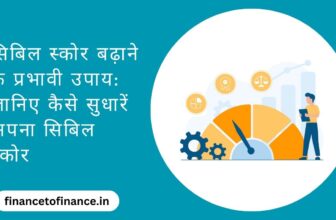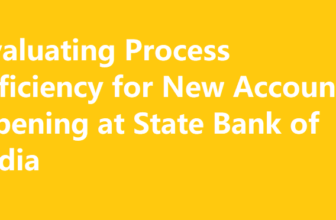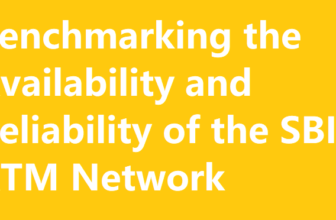
Streamlining Customer Relationships: A Look at CRM ICICI Bank
The cut-throat world of banking demands that financial institutions forge unbreakable relationships with their customers if they hope to succeed. Enter Customer Relationship Management (CRM), a veritable godsend for banks struggling to manage their customer base. With CRM, banks can streamline their customer interactions, thereby ensuring greater satisfaction and improved customer loyalty. And in India, ICICI Bank stands tall as one of the largest private sector banks, pushing the envelope in the adoption of innovative technologies and strategies geared towards enhancing customer experience.
We will uncover the secret of ICICI Bank’s CRM strategy, examining the cutting-edge tools and technologies used in the implementation process, and the remarkable results achieved. You will be captivated by the story of how ICICI Bank revolutionized customer relations, enhancing the bank’s standing in the Indian financial sector. The knowledge gained will leave you spellbound, and with a deeper appreciation for how CRM can bolster customer relationships in the banking industry at large
Overview of CRM ICICI Bank
Behold the marvel that is ICICI Bank, leading the charge in the Indian banking industry with its pioneering adoption of cutting-edge CRM practices to manage its customer relationships. The bank’s CRM system is nothing short of a masterpiece, offering an all-encompassing view of each customer’s interaction with the bank. From account details to transaction history and communication records, the bank is privy to every aspect of its customer’s life, empowering it to offer personalized services and support to each individual.
But the CRM ICICI Bank system is no mere run-of-the-mill tool; it is a behemoth, powered by advanced analytics and automation tools that segment customers based on various factors such as demographics, transaction history, and behaviour. This segmentation enables the bank to target specific customer groups with tailored marketing campaigns, promotions, and services that leave them spellbound.
And the pièce de résistance of ICICI Bank’s CRM system is its ability to provide an uninterrupted customer experience across multiple channels, be it online, mobile, or offline. The bank’s CRM system seamlessly integrates with its various digital platforms, allowing customers to access their account information, make transactions, and get support in real-time, without any delay. This results in reduced customer wait times, heightened customer satisfaction, and a boost in customer loyalty.
CRM ICICI Bank system is an indispensable tool that allows it to manage customer relationships effectively. By providing a holistic view of each customer’s interaction with the bank and leveraging advanced analytics and automation, the bank can offer personalized services and support, target specific customer groups with customized marketing campaigns, and provide a seamless customer experience across multiple channels, leaving customers captivated and loyal.
ICICI Bank’s CRM Strategy
ICICI Bank’s CRM strategy is centered around the goal of providing a superior customer experience through personalized services and support. The bank uses various tools and technologies to achieve this goal, including customer segmentation, analytics, automation, and integration with digital platforms.
Customer Segmentation: ICICI Bank segments its customers based on various factors such as demographics, transaction history, and behaviour. This helps the bank to target specific customer groups with tailored marketing campaigns, promotions, and services. By understanding each customer’s needs and preferences better, the bank is able to provide personalized services and support, which improves customer satisfaction and loyalty.
Analytics: ICICI Bank leverages advanced analytics to gain insights into customer behaviour, preferences, and needs. This enables the bank to identify trends, patterns, and opportunities for improving its services and support. Analytics also helps the bank to track customer interactions across various channels and measure the effectiveness of its CRM strategies.
Automation: ICICI Bank uses automation to streamline its customer interactions and improve the efficiency of its operations. For example, the bank uses chatbots to provide instant support to customers, reducing wait times and improving the overall customer experience. The bank also uses automation to send personalized messages and notifications to customers based on their preferences and behaviour.
Integration with Digital Platforms: ICICI Bank integrates its CRM system with its various digital platforms, including its website, mobile app, and social media channels. This allows customers to access their account information, make transactions, and get support in real time, regardless of the channel they use. This helps to reduce customer wait times, improve customer satisfaction, and increase customer loyalty.
ICICI Bank’s CRM strategy is focused on providing a superior customer experience through personalized services and support. The bank leverages various tools and technologies, including customer segmentation, analytics, automation, and integration with digital platforms, to achieve this goal. This approach has helped the bank to establish itself as a leader in the Indian banking industry and has improved its customer satisfaction and loyalty.
ICICI Bank’s CRM Implementation Process
The implementation of ICICI Bank’s CRM system was a complex process that involved multiple stages and stakeholders. The bank followed a systematic approach to ensure the successful implementation of its CRM system.
- Define Objectives and Goals: The first step in the implementation process was to define the objectives and goals of the CRM system. ICICI Bank identified the key areas where it wanted to improve its customer experience, such as personalized services, targeted marketing campaigns, and seamless customer support.
- Select CRM Software and Vendors: ICICI Bank evaluated various CRM software options and selected a vendor that offered a system that met its requirements. The bank also selected vendors for other tools and technologies such as analytics, automation, and integration.
- Develop a Project Plan: ICICI Bank developed a comprehensive project plan that outlined the various stages of the implementation process, the timelines, and the roles and responsibilities of each stakeholder. The plan also identified potential risks and mitigation strategies.
- Train Staff: ICICI Bank provided training to its staff on the new CRM system and other tools and technologies. The bank also established a dedicated team to oversee the implementation process and provide support to staff.
- Test and Refine: ICICI Bank tested the new system extensively before its launch to ensure its functionality and effectiveness. The bank also refined the system based on feedback from staff and customers.
- Launch and Monitor: ICICI Bank launched the new CRM system and monitored its performance closely. The bank made adjustments and improvements as needed to ensure its effectiveness and alignment with its objectives and goals.
- Continuous Improvement: ICICI Bank continues to make improvements to its CRM system and other tools and technologies to ensure that it remains effective in meeting its objectives and goals.
The implementation of ICICI Bank’s CRM system was a comprehensive process that involved defining objectives and goals, selecting software and vendors, developing a project plan, training staff, testing and refining the system, launching and monitoring it, and continuous improvement. This systematic approach helped the bank to successfully implement its CRM system and improve its customer experience.
Results of ICICI Bank’s CRM System
ICICI Bank’s CRM system has had a significant impact on the bank’s business and customer experience. The implementation of the CRM system has resulted in the following benefits:
- Improved Customer Satisfaction: ICICI Bank’s CRM system has improved its customer satisfaction by providing personalized services and support. Customers can now access their account information, make transactions, and get support in real-time, regardless of the channel they use. This has reduced customer wait times and improved the overall customer experience.
- Increased Customer Loyalty: ICICI Bank’s CRM system has increased customer loyalty by providing tailored marketing campaigns, promotions, and services. By understanding each customer’s needs and preferences better, the bank is able to provide personalized services and support, which improves customer satisfaction and loyalty.
- Higher Revenue: ICICI Bank’s CRM system has resulted in higher revenue by enabling the bank to target specific customer groups with tailored marketing campaigns and promotions. By understanding each customer’s needs and preferences better, the bank is able to provide personalized services and support, which leads to higher customer retention and revenue.
- Improved Efficiency: ICICI Bank’s CRM system has improved the efficiency of its operations by streamlining customer interactions and reducing wait times. The bank uses chatbots to provide instant support to customers, reducing wait times and improving the overall customer experience. The bank also uses automation to send personalized messages and notifications to customers based on their preferences and behaviour, which improves efficiency and reduces manual work.
- Competitive Advantage: ICICI Bank’s CRM system has given the bank a competitive advantage in the Indian banking industry. The bank is able to provide personalized services and support, which has improved customer satisfaction and loyalty. This has helped the bank to establish itself as a leader in the Indian banking industry and attract new customers.
CICI Bank’s CRM system has had a significant impact on the bank’s business and customer experience. The system has improved customer satisfaction, increased customer loyalty, resulted in higher revenue, improved efficiency, and given the bank a competitive advantage in the Indian banking industry.
Conclusion
CRM (Customer Relationship Management) has played a critical role in the success of ICICI Bank. Through the implementation of various CRM strategies and technologies, ICICI Bank has been able to build stronger relationships with its customers, improve customer satisfaction, and increase its overall profitability. The bank has effectively used CRM tools to gather customer data, analyze customer behaviour, and provide personalized services that meet individual customer needs. With the help of CRM, ICICI Bank has been able to anticipate customer needs, provide timely solutions, and create a better overall customer experience. Overall, the implementation of CRM ICICI Bank to become one of the most successful and customer-focused banks in India.






